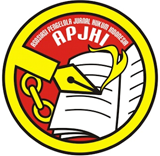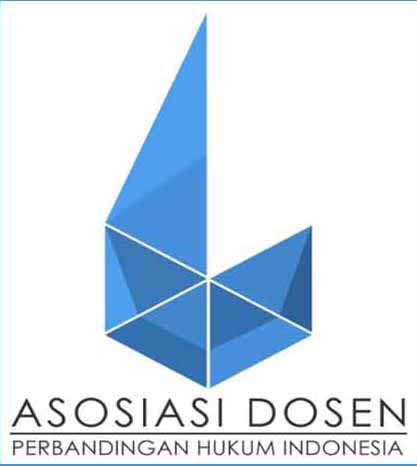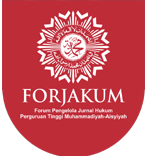Genealogy of Islamic Business Organization: The Institutional Approach Towards Current Islamic Corporate Law
Abstract
This article examines the social foundation which posed challenges to the adoption of corporate form as a business entity within the framework of Islamic legal tradition. This article employs juridical-normative research analysis with socio-legal approach. This paper concludes: (1) The corporate legal form was not required by the medieval Islamic legal system as well as the case in Western Europe due to several reason such as: an institutional vacuity; withdrawal of community capital resources into waqf institutions; stagnancy in institutional development of business organizations in Islamic law; and inability of the Muslim business elite to consolidate power. (2) In classical fiqh discussions, Islamic business organizations do not have legal personality. The closest approximation to corporate legal entities found in Islam have been bayt al-māl (public treasury), mosque property, and waqf (trusts). Recently, the scholars have approved the corporate form on the basis of fiqh principles of qiyas (analogy) and istihsan, or masaliha mursalah (public interest).
Keywords
Full Text:
PDFReferences
Abdullah, Luqman, Muhammad Ikhlas Rosele, and Wan Marhaini Wan Ahmad, ‘The Concept of Legal Entity from the Islamic Law Perspectives’, Pertanika, 28 (2020), 3207–21. https://doi.org/10.47836/pjssh.28.4.39.
Ahmed, Faisal Z, ‘Muslim Conquest and Institutional Formation’, Explorations in Economic History, 81 (2021), 101400. https://doi.org/10.1016/j.eeh.2021.101400.
Akbar, M. Fabian, Irvan Mareto, Alfido Fiqri Arsy Adhiem, Ayi Dudi Firdaus, and Adriana Maisarah binti Mohd Farid, ‘The Financial Balance Policy Between Central and Local Government: Toward More Just Financial Allocation’, Yuridika, 38.2 (2023), 415–30. https://doi.org/10.20473/ydk.v38i2.42904.
Almansour, Abdullah, ‘Muslim Investors and the Capital Market: The Role of Religious Scholars’, Pacific-Basin Finance Journal, 58 (2019), 101211. https://doi.org/10.1016/j.pacfin.2019.101211.
Arcalean, Calin, ‘Dynamic Fiscal Competition: A Political Economy Theory’, Journal of Public Economics, 164 (2018), 211–24. https://doi.org/10.1016/j.jpubeco.2018.06.002.
Ari, Ibrahim, and Muammer Koc, ‘Towards Sustainable Financing Models: A Proof-of-Concept for a Waqf-Based Alternative Financing Model for Renewable Energy Investments’, Borsa Istanbul Review, 21 (2021), S46–56. https://doi.org/10.1016/j.bir.2021.03.007.
Baqutayan, Shadiya Mohamed S, Aini Suzana Ariffin, Magda Ismail A Mohsin, and Akbariah Mohd Mahdzir, ‘Waqf Between the Past and Present’, Mediterranean Journal of Social Sciences, 9.4 (2018), 149–55. https://doi.org/10.2478/mjss-2018-0124.
Bosanquet, Antonia, ‘Ordered Relationships. The Regulation of Jewish-Christian Marriages and Children in Ibn Qayyim Al-Jawziyya’s Legal Works’, Entangled Religions, 13.2 (2022). https://doi.org/10.46586/er.13.2022.9938
Brata, Al Fadilla Yoga, Rakotoarisoa Maminiaina, and Heritiana Sedera, ‘The Implementing a Carbon Tax as a Means of Increasing Investment Value in Indonesia’, Journal of Sustainable Development and Regulatory Issues (JSDERI), 1.2 (2023), 39–50. https://doi.org/10.53955/jsderi.v1i2.6.
Cattelan, Valentino, ‘Between Theory(-Ies) and Practice(-s): Legal Devices (Hiyal) in Classical Islamic Law’, Arab Law Quarterly (Brill, 2017), 245–75. https://doi.org/10.1163/15730255-31030053.
Dahlan, Moh, Mohammad Reevany Bustami, Makmur, and Siti Mas’ulah, ‘The Islamic Principle of Ḥifẓ Al-Nafs (Protection of Life) and COVID-19 in Indonesia: A Case Study of Nurul Iman Mosque of Bengkulu City’, Heliyon, 7.7 (2021), e07541. https://doi.org/10.1016/j.heliyon.2021.e07541.
Darus, Faizah, Nurul Huda Ahmad Shukri, Haslinda Yusoff, Aliza Ramli, Mustaffa Mohamed Zain, and Nur Ain Abu Bakar, ‘Empowering Social Responsibility of Islamic Organizations through Waqf’, Research in International Business and Finance, 42 (2017), 959–65. https://doi.org/10.1016/j.ribaf.2017.07.030.
Diab, Ashadi L, Iswandi Iswandi, Andi Yaqub, Lian M Muthalib, and A Zamakhsyari Baharuddin, ‘Safeguarding Consumers: The Role of Industry and Trade Office in Countering Monopolistic Practices and Ensuring Business Protection’, Volksgeist: Jurnal Ilmu Hukum Dan Konstitusi, 6.2 (2023), 299–312. https://doi.org/10.24090/volksgeist.v6i2.9065.
Fayyad, Mahmoud, ‘Reconstructing Lease-to-Own Contracts: A Contemporary Approach to Islamic Banking Standards’, Heliyon, 9.9 (2023), e19319. https://doi.org/10.1016/j.heliyon.2023.e19319
Ford, Robert C., Ronald F. Piccolo, and Loren R. Ford, ‘Strategies for Building Effective Virtual Teams: Trust Is Key’, Business Horizons, 60.1 (2017), 25–34. https://doi.org/10.1016/j.bushor.2016.08.009.
Ghlamallah, Ezzedine, Christos Alexakis, Michael Dowling, and Anke Piepenbrink, ‘The Topics of Islamic Economics and Finance Research’, International Review of Economics & Finance, 75 (2021), 145–60. https://doi.org/10.1016/j.iref.2021.04.006.
Grajzl, Peter, and Peter Murrell, ‘A Macrohistory of Legal Evolution and Coevolution: Property, Procedure, and Contract in Early-Modern English Caselaw’, International Review of Law and Economics, 73 (2023), 106113. https://doi.org/10.1016/j.irle.2022.106113.
Greif, Avner, and Joel Mokyr, ‘Cognitive Rules, Institutions, and Economic Growth: Douglass North and Beyond’, Journal of Institutional Economics, 13.1 (2017), 25–52. https://doi.org/10.1017/S1744137416000370.
Greif, Avner, and Guido Tabellini, ‘The Clan and the Corporation: Sustaining Cooperation in China and Europe’, Journal of Comparative Economics, 45.1 (2017), 1–35. https:/https://doi.org/10.1016/j.jce.2016.12.003.
Griffo, Cristine, João Paulo A Almeida, João A O Lima, Tiago Prince Sales, and Giancarlo Guizzardi, ‘Legal Powers, Subjections, Disabilities, and Immunities: Ontological Analysis and Modeling Patterns’, Data & Knowledge Engineering, 148 (2023), 102219. https://doi.org/10.1016/j.datak.2023.102219.
Gunawan, Yordan, Arif Budiman, Nafiza Fauziah, and Wa Ode Fithrah Az-zalia Syamsudin, ‘Journalist Protection on the Battlefield Under the International Humanitarian Law: Russia-Ukraine War’, Jurnal Hukum Unissula, 39.1 (2023), 1–11. https://doi.org/10.26532/jh.v39i1.24685.
Gunawan, Yordan, and Yovi Cajapa Endyka, ‘The Protection of Small and Medium Enterprises in Yogyakarta: The Challenges of ASEAN Economic Community’, Pertanika J. Soc. Sci. & Hum, 25.2017 (2017), 199–206
Gunawan, Yordan, Elvita Anggoro Wati, and Eva Ferrer Corral, ‘Responsibility of Iran on the MV Mercer Street Attack in International Law’, Brawijiaya Law Journal, 10.1 (2023), 72–88. https://doi.org/10.21776/ub.blj.2023.010.01.05.
Hadani, Michael, Jonathan P Doh, and Marguerite Schneider, ‘Social Movements and Corporate Political Activity: Managerial Responses to Socially Oriented Shareholder Activism’, Journal of Business Research, 95 (2019), 156–70. https://doi.org/10.1016/j.jbusres.2018.10.031.
Huang, Fumian, Liming Ge, and Sirui Wu, ‘Minority Shareholder Protection, Corporate Governance, and Investment Efficiency’, Finance Research Letters, 58 (2023), 104506 https://doi.org/10.1016/j.frl.2023.104506.
Hirsanudin, Hirsanudin, and Dwi Martini, ‘Good Corporate Governance Principles in Islamic Banking: A Legal Perspective on the Integration of TARIF Values’, Journal of Indonesian Legal Studies, 8.2 (2023), 935–74. https://doi.org/10.15294/jils.v8i2.70784.
Jan, Ahmad Ali, Fong Woon Lai, and Muhammad Tahir, ‘Developing an Islamic Corporate Governance Framework to Examine Sustainability Performance in Islamic Banks and Financial Institutions’, Journal of Cleaner Production, 315 (2021), 128099 https://doi.org/10.1016/j.jclepro.2021.128099.
Kasdi, Abdurrohman, Abdul Karim, Umma Farida, and Miftahul Huda, ‘The Development of Waqf in the Middle East and Its Role in Pioneering Contemporary Islamic Civilization: A Historical Approach’, Journal of Islamic Thought and Civilization, 12.1 (2022), 186–98. https://doi.org/10.32350/jitc.121.10.
Kurt, Yusuf, Noemi Sinkovics, Rudolf R Sinkovics, and Mo Yamin, ‘The Role of Spirituality in Islamic Business Networks: The Case of Internationalizing Turkish SMEs’, Journal of World Business, 55.1 (2020), 101034. https://doi.org/10.1016/j.jwb.2019.101034
Lazega, Emmanuel, Eric Quintane, and Sandrine Casenaz, ‘Collegial Oligarchy and Networks of Normative Alignments in Transnational Institution Building’, Social Networks, 48 (2017), 10–22. https://doi.org/10.1016/j.socnet.2016.08.002.
Lévêque, Christophe, and Mohamed Saleh, ‘Does Industrialization Affect Segregation? Evidence from Nineteenth-Century Cairo’, Explorations in Economic History, 67 (2018), 40–61. https://doi.org/10.1016/j.eeh.2017.08.001.
Li, Zhuo, Laura Panza, and Yong Song, ‘The Evolution of Ottoman–European Market Linkages, 1469–1914: Evidence from Dynamic Factor Models’, Explorations in Economic History, 71 (2019), 112–34. https://doi.org/10.1016/j.eeh.2018.10.002.
Markiewicz, Christopher, ‘Europeanist Trends and Islamicate Trajectories in Early Modern Ottoman History’, Past and Present, 239.1 (2018), 265–81. https://doi.org/10.1093/pastj/gty009.
Maulana Malik Ibrahim Malang, Uin, ‘’Abd Al-Majīd Al-Najjār’s Perspective on Maqāṣid Al-Sharī’ah Faishal Agil Al M Unawar’, JURIS: Jurnal Ilmiah Syari’ah, 20.2 (2021), 209–23. https://doi.org/10.31958/juris.v20i2.4281.
Medaline, Onny, ‘The Development of “Waqf” on the “Ulayat” Lands in West Sumatera, Indonesia’, Journal of Social Science Studies, 5.1 (2017), 108. https://doi.org/10.5296/jsss.v5i1.10419.
Melvin‐Koushki, Matthew, ‘Early Modern Islamicate Empire: New Forms of Religiopolitical Legitimacy’, The Wiley Blackwell History of Islam, 2018, 351–75. https://doi.org/10.1002/9781118527719.ch17.
Nugraha, Ahmad Lukman, Adib Susilo, Miftahul Huda, Mohamad Anton Athoillah, and Chaerul Rochman, ‘Waqf Literacy: The Dynamics of Waqf in Indonesia’, Journal of Islamic Economics and Finance Studies, 3.2 (2022), 102. https://doi.org/10.47700/jiefes.v3i2.5082.
Nyberg, Daniel, and John Murray, ‘Corporate Populism: How Corporations Construct and Represent “the People” in Political Contestations’, Journal of Business Research, 162 (2023), 113879. https://doi.org/10.1016/j.jbusres.2023.113879.
Pahlevi, Reza Widhar, ‘Mapping of Islamic Corporate Governance Research: A Bibliometric Analysis’, Journal of Islamic Accounting and Business Research, 14.4 (2023), 538–53. https://doi.org/10.1108/JIABR-12-2021-0314.
Qodir, Zuly, Haedar Nashir, and Robert W. Hefner, ‘Muhammadiyah Making Indonesia’s Islamic Moderation Based on Maqāsid Sharī’ah’, Ijtihad: Jurnal Wacana Hukum Islam Dan Kemanusiaan, 23.1 (2023), 77–92. https://doi.org/10.18326/IJTIHAD.V23I1.77-92.
Ramli, Mohd Hilmi, ‘Commercial Partnership in Islam: A Brief Survey of Kitab Al-Mudarabah of Al-Mabsut by Al-Sarakhsi (d. 483/1090)’, TAFHIM: IKIM Journal of Islam and the Contemporary World, 11 (2018). https://doi.org/10.56389/tafhim.vol11no1.4.
Rezaee, Zabihollah, ‘Business Sustainability Research: A Theoretical and Integrated Perspective’, Journal of Accounting Literature, 36.1 (2016), 48–64. https://doi.org/10.1016/j.acclit.2016.05.003.
Saada, Najwan, ‘Educating for Global Citizenship in Religious Education: Islamic Perspective’, International Journal of Educational Development, 103 (2023), 102894 https://doi.org/10.1016/j.ijedudev.2023.102894.
Sapuan, Noraina Mazuin, ‘An Evolution of Mudarabah Contract: A Viewpoint From Classical and Contemporary Islamic Scholars’, Procedia Economics and Finance, 35 (2016), 349–58. https://doi.org/10.1016/S2212-5671(16)00043-5.
Siboy, Ahmad, Iwan Permadi, Zahlul Pasha Karim, and Firmansyah Abdul Karim, ‘The Islamic Law-Based Design of Regional Head Post-Filling ’, Legality : Jurnal Ilmiah Hukum, 32.1 (2024), 1–15. https://doi.org/10.22219/ljih.v32i1.31261.
Surya, Riza Afita, and Daya Negri Wijaya, ‘Females Roles and Their Social World in Al-Andalus’, International Journal of Islamic Thought, 23.1 (2023). https://doi.org/10.24035/ijit.23.2023.259.
Tajdin, Mustapha, ‘Sharīʿa as State Law: An Analysis of ʿAllāl Al-Fāsī’s Concept of the Objectives of Islamic Law’, Journal of Law and Religion, 35.3 (2020), 494–514. https://doi.org/10.1017/jlr.2020.41.
Terpstra, Taco, ‘Roman Technological Progress in Comparative Context: The Roman Empire, Medieval Europe and Imperial China’, Explorations in Economic History, 75 (2020), 101300. https://doi.org/10.1016/j.eeh.2019.101300.
Triasari, Devi, and Francesco de Zwart, ‘The Legal Reform Policy on the Shariah Supervisory Board Role’s in Indonesian Shariah Banks’, Bestuur, 9.2 (2021), 113–25. https://doi.org/10.20961/bestuur.v9i2.55173.
Uberti, Luca J, ‘Corruption in Transition Economies: Socialist, Ottoman or Structural?’, Economic Systems, 42.4 (2018), 533–55. https://doi.org/10.1016/j.ecosys.2018.05.001.
Uribe-Castro, Mateo, ‘Expropriation of Church Wealth and Political Conflict in 19th Century Colombia’, Explorations in Economic History, 73 (2019), 101271. https://doi.org/10.1016/j.eeh.2019.03.001.
Young, Andrew T, ‘Consent or Coordination? Assemblies in Early Medieval Europe’, International Review of Law and Economics, 72 (2022), 106096. https://doi.org/10.1016/j.irle.2022.106096
Yüksel, Emine, ‘Gender and Succession in Medieval and Early Modern Islam: Bilateral Descent and the Legacy of Fatima’, Journal of Middle East Women’s Studies, 19.1 (2023), 98–100. https://doi.org/10.1215/15525864-10256197.
DOI: https://doi.org/10.18196/jmh.v31i1.20132
Refbacks
- There are currently no refbacks.
Copyright (c) 2024 Windi Afdal, Tarsisius Murwadji, Renny Supriyatni, Etty Mulyati, Francis Daniel Mbilinyi

This work is licensed under a Creative Commons Attribution-NonCommercial 4.0 International License.
JMH Visitor






















